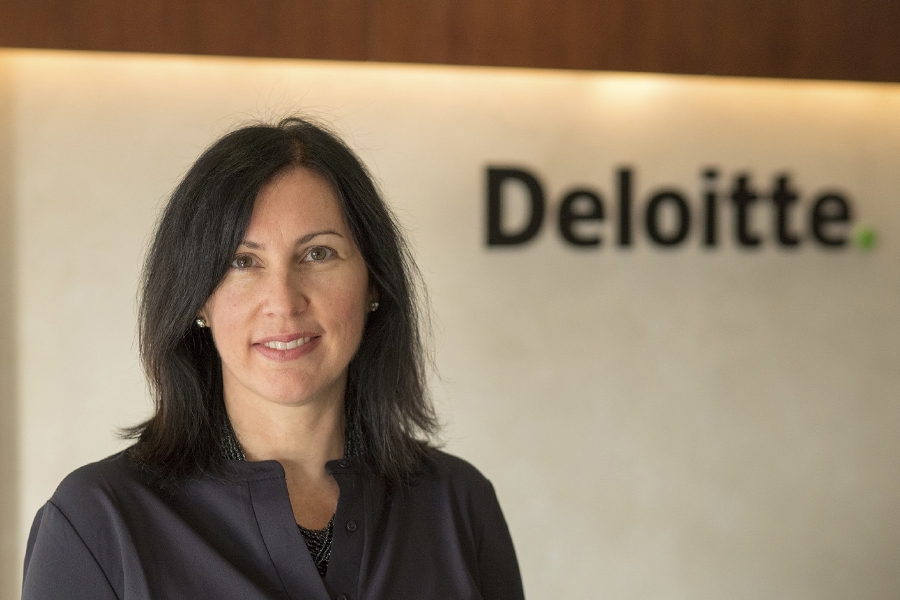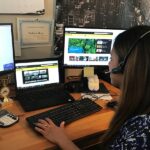Brand Story – How remote work fuels employee engagement and business performance with Michele Parmelee, global chief people and purpose officer at Deloitte
Q: How long ago and why did Deloitte start rolling out its remote work programs?
A: Flexible work is nothing new for us. Deloitte first began implementing formal and informal flex work arrangements with an eye toward talent retention decades ago.
We have promoted the importance and value of flexible working for many years as part of our global commitment to well-being, and it is at the heart of our inclusive culture. We recognize that our people are balancing demanding careers with commitments and interests outside of work, so we strive to provide a modernized working environment where everyone can thrive and be themselves.
For Deloitte, flexible working means providing our people with the confidence and flexibility needed to make the right decision for themselves and the business, including where, how, and when they work. This may mean working remotely; adjusting schedules to accommodate team, home, and client situations; adopting technology solutions to enable seamless collaboration; and teaming and flexing to meet fluctuating business needs. It also may encompass other approaches, such as abbreviated or flexible work hours; working longer, but fewer days each week; and job sharing.
When Deloitte began to roll-out its flexible work programs, we were not thinking about potential pandemics or other global crises. We were looking to provide our people with better work/life balance in today’s “always on” and “always reachable” work environment.
Q: What ultimately pushed you to do it? Was there initial resistance? Did any of your initial worries about remote work ever come to fruition?
A: We introduced flexible working across most of our geographies as a result of feedback from our own people – who were telling us that they were looking for ways to balance work and life – and external research which was telling us that Millennials and Gen Z’s saw it as a critical element for their employer to provide. Deloitte Global’ s Millennial Survey has consistently found that flexible work arrangements enhance employee loyalty, and support greater productivity and employee engagement, while enhancing their personal well-being, health, and happiness.
With any change there will always be some who take longer to embrace it – so we ensured that we focused on leadership attitudes and removing any cultural barriers to success that existed. We focused on the positives – including increased engagement and productivity, better work-life balance, and the ability to recruit and retain top talent. We also ensured that we set clear principals which would guide the way we approached all flexible working.
Over the past few years, we have been clear that this is about more than having policies – it is about leaders embracing the benefits of working flexibly and ensuring that the culture in place enables it. This includes addressing unconscious bias. Left unchecked, unconscious bias can determine many choices that we make in our everyday work, from the way we allocate tasks to how we manage challenging situations. Leaders need to be aware that when teams are working from home and conducting routine business through calls and virtual meetings, they need to be especially alert to bias and avoid making assumptions about their team members.
Q: Why leverage flexible/remote work from a business standpoint? What’s to gain?
A: We know that flexible work is key to attracting and retaining future talent. Prioritizing flexible work and creating a culture of trust focused on output versus presenteeism can also result in increased productivity and less turnover.
The data proves it: Among those who work remotely, both part- and full-time, productivity levels skyrocket—77% feel more productive when working remotely, and 30% feel they’ve accomplished more in less time. Flex workers also take shorter breaks, fewer sick days, and less vacation time. Clearly, flexible work works.
Q: What’s typically the most overlooked business benefit of flexible/remote work? Why?
A: When it’s done well, flexible work empowers our people to take control of where, when, and how they work while enabling our leaders to bring the people with the best experience and skillsets to our clients, regardless of their work arrangements.
While flexible work is something that we know to be attractive to all people, we have also seen a benefit from a gender perspective. One of our member firms can directly link the significant progress that it has made on gender diversity to its relentless focus on embedding flexible work across its business, at all levels. This is in line with external research that shows that those companies that enable flexible work arrangements have almost three times as many female leaders as those that don’t.
We also learned that flexible work can help advance progress toward Deloitte’s environmental sustainability ambitions at a very critical time. For example, when employees work from home rather than commute—by car, train, or plane—they help, in small but meaningful ways, reduce the organization’s carbon footprint. Organizations can save on real estate and other overhead costs, as well.
Q: Does flexible/remote work impact productivity?
A: Remote work can offer improved productivity and enable a better work/life balance, but it also presents challenges which leaders and professionals need to be mindful of. For example, remote working can make it more difficult for people to define the boundaries between work, family affairs, and personal time. Leaders and managers should focus on making sure all remote workers maintain boundaries to enable appropriate work-life balance and foster greater well-being.
Q: Are there any specific types of work roles/functions that are particularly well-suited for remote work?
A: We are discovering many ways to increase innovation while working remotely. While there are of course some jobs that require regular, in-person interaction, it is a best practice to start with the assumption that most jobs can be done in a flexible or remote manner unless proven otherwise.
It’s important to communicate and demonstrate that flexible/remote work arrangements are equally available to all practitioners in order to combat potential misconceptions. Working effectively in a virtual/flexible environment helps increase inclusion of the entire team, even when not together physically. An inclusive leader can help manage this effectively and ultimately help drive greater innovation.
Q: What advice do you have for effectively setting up and managing remote workers?
A: Recognize that a relationship of trust, respect, open communication, and clearly defined deliverables is essential for success. Provide people with the confidence and flexibility needed to make the right decision for themselves, including how and where they work
To make flexible/remote work effective, the individual, organization, and client must be aligned on expectations and rules of the road. That means fostering a workplace culture that recognizes and rewards productivity and performance, not presenteeism. It means ongoing efforts to combat the misconception that flexible work is gender-driven. And, it means encouraging transparency at all levels so employees can establish work schedules that enable them to prioritize their work and their well-being.
For organizations exploring remote/flexible work arrangements for the first time, a pilot program may be helpful. This allows them to experiment with new ways of flexible working and to begin training managers and professionals with the necessary skills and tools. This time to experiment can help transform any potential manager cynicism into confidence and support of flexible work.
Q: Has Deloitte’s experience with flexible work benefited the company during COVID-19?
A: Deloitte is adapting to this new environment just like everyone else, but our extensive experience with flexible and remote work did help us respond rapidly to the pandemic. Companies that embrace future of work practices are better positioned to sustain their operations and respond quickly to the demands of navigating COVID-19. In these companies, work, workforce, and workplace experiences are supported by an ecosystem of virtual resources, technology, and behavioral norms that define work as a thing we do, not a place we go. As a result, these organizations can mount a holistic response under tight timelines as dictated by the unfolding pandemic.
We are also prioritizing creative ways to provide development opportunities for our professionals to continue to learn and grow virtually. This includes shifting in-person learning to virtual delivery and accelerated deployment of a personalized/curated on-demand learning platform. Our new global learning and knowledge curation platform enables our leaders and talent to rapidly share business and industry resources to support practitioners with the latest knowledge or new skills. We also offer a number of mindfulness training programs both locally and globally – an essential skill for people to master to care for their well-being and increase creativity.
Brand stories are paid content articles that allow Oregon Business advertisers to share news about their organizations and engage with readers on business and public policy issues. The stories are produced in house by the Oregon Business marketing department. For more information, contact associate publisher Courtney Kutzman.






